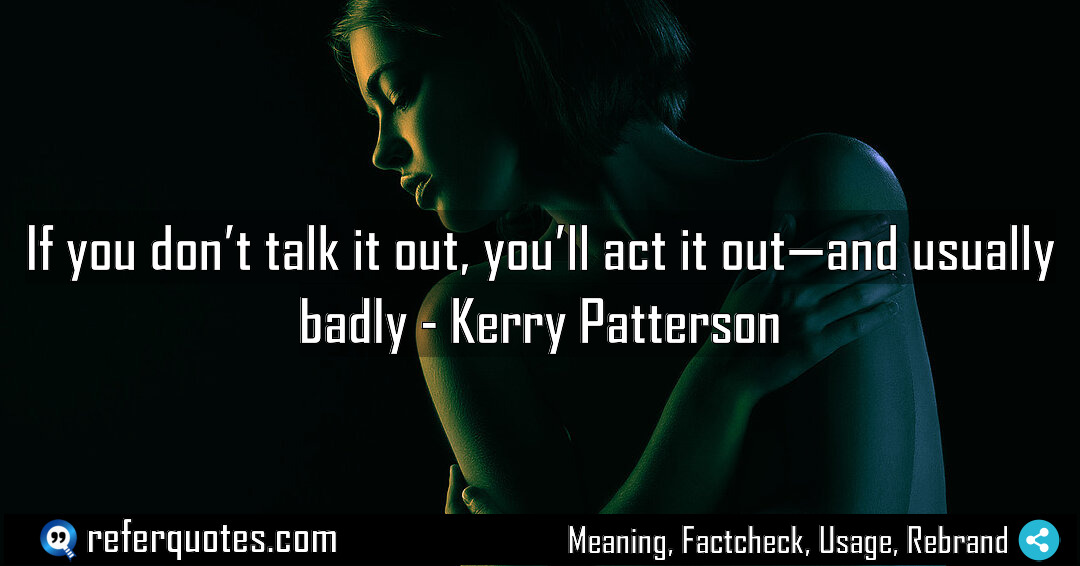You know, that idea “If you don’t talk it out, you’ll act it out” is one of those truths that hits harder the longer you’re in the workforce. It’s not just a quote; it’s a pattern you see play out over and over. When people avoid the real conversation, the pressure has to go somewhere, and it almost always comes out in destructive ways.
Share Image Quote:Table of Contents
Meaning
At its core, this is about the fundamental choice we all face in high-stakes situations: address the issue with words or suffer the consequences through negative actions.
Explanation
Let me break it down the way I’ve seen it happen. The “not talking it out” part isn’t just staying silent. It’s that whole dance we do—the silent treatment, the passive-aggressive comments, the complaining to everyone *except* the person we have the problem with. We tell ourselves we’re “keeping the peace,” right? But what’s really happening is that all that frustration and anxiety has no release valve. So it builds. And builds. Until finally, it doesn’t take much. A tiny spark. And you “act it out.” Maybe you blow up in a meeting. Or you disengage completely. Or you make a snide, undermining remark. The “badly” part is a guarantee because you’re not acting from a place of logic; you’re acting from a place of pent-up emotion. It’s messy, it’s personal, and it almost always makes the original problem ten times worse.
Quote Summary
| Context | Attributes |
|---|---|
| Original Language | English (3668) |
| Category | Emotion (177) |
| Topics | behavior (66), emotion general (105), expression (22) |
| Literary Style | concise (408), memorable (234) |
| Emotion / Mood | serious (155) |
| Overall Quote Score | 77 (179) |
Origin & Factcheck
This gem comes straight from the 2002 classic, Crucial Conversations, by the quartet of Patterson, Grenny, McMillan, and Switzler. You’ll sometimes see it misattributed to psychologists or other self-help gurus, but its true home is in that foundational book on communication, which originated from the authors’ work in the United States.
Attribution Summary
| Context | Attributes |
|---|---|
| Author | Kerry Patterson (35) |
| Source Type | Book (4032) |
| Source/Book Name | Crucial Conversations: Tools for Talking When Stakes Are High (35) |
| Origin Timeperiod | 21st Century (1892) |
| Original Language | English (3668) |
| Authenticity | Verified (4032) |
Author Bio
Kerry Patterson coauthors influential books that help people tackle tough conversations, drive change, and build accountability at work and beyond. He cofounded VitalSmarts (now Crucial Learning) and spent decades developing training that organizations implement globally. He earned a master’s degree from Brigham Young University and completed doctoral work in organizational behavior at Stanford, and he has taught and consulted widely. The Kerry Patterson book list includes Crucial Conversations, Crucial Accountability, Influencer, and Change Anything—bestselling titles that continue to shape modern leadership and communication practices.
| Official Website
Where is this quotation located?
| Quotation | If you don’t talk it out, you’ll act it out—and usually badly |
| Book Details | Publication Year/Date: 2002; ISBN/Unique Identifier: 9780071771320; Last Edition: 3rd Edition (2021); Number of Pages: 272. |
| Where is it? | Chapter: Learn to Look, Approximate page from 2021 edition |
